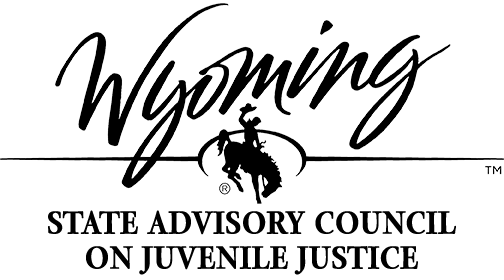
Core Protections
The SACJJ strongly supports and promotes OJJDP’s Four Core Protections for the safe and appropriate holding of juveniles as best practices in the state of Wyoming.
- Deinstitutionalization of Status Offenders (DSO)
Status offenses are offenses that only apply to minors whose actions would not be considered offenses if they were adults. The most common are skipping school, running away, breaking curfew, and possession or use of alcohol. Under the JJDPA, status offenders may not be held in secure detention or confinement. There are, however, several exceptions to this rule, including allowing some status offenders to be detained for up to 24 hours. The DSO provision seeks to ensure that status offenders who have not committed a criminal offense are not held in secure juvenile facilities for extended periods of time or in secure adult facilities for any length of time. These children, instead, should receive community-based services, such as day treatment or residential home treatment, counseling, mentoring, family support, and alternative education.
- Sight and Sound Separation (Separation)
When children are placed in an adult jail or lock-up, as in exceptions listed above, “sight and sound” contact with adults is prohibited. This provision seeks to prevent children from psychological abuse and physical assault. Under “sight and sound,” children cannot be housed next to adult cells, share dining halls, recreations areas, or any other common spaces with adults, or be placed in any circumstances that could expose them to threats or abuse from adult offenders.
- Adult Jail and Lock-up Removal (Jail Removal)
Youth may not be detained in adult jails and lock-ups except for limited times before or after a court hearing (6 hours), in rural areas (24 hours plus weekends and holidays), or in unsafe travel conditions. This provision does not apply to children who are tried or convicted in adult criminal court of a felony level offense. This provision is designed to protect children from psychological abuse, physical assault, and isolation. Children housed in adult jails and lock-ups have been found to be eight times more likely to commit suicide, two times more likely to be assaulted by staff, and 50 percent more likely to be attacked with a weapon than children in juvenile facilities, according to U.S. Department of Justice Studies.
- Racial and Ethnic Disparities (RED)
This was formerly referred to as Disproportionate Minority Contact (DMC). States are required to assess and address the racial and ethnic disparities of youth at all points in the justice system – from arrest to detention to confinement. Studies indicate that youth of color receive tougher sentences and are more likely to be incarcerated than white youth for the same offenses. With youth of color making up one-third of the youth population, but two-thirds of youth in the juvenile justice system, this provision requires states to gather information and assess the reason for disproportionate minority contact.
New Members Needed
If you are considering serving on the State Advisory Council on Juvenile Justice, please follow the link below for the online application and apply under the "Juvenile Justice Advisory Council (Interstate Compact for Juveniles)":
2026 Meetings Dates/Locations
1/15-1/16: Cheyenne, WY
4/16-4/17: Powell, WY
6/18-6/19: Saratoga, WY
9/17-9/18: Pinedale, WY
11/19-11/20: Laramie, WY
This Web site is funded through a grant from the Office of Juvenile Justice and Delinquency Prevention, Office of Justice Programs, U.S. Department of Justice. Neither the U.S. Department of Justice nor any of its components operate, control, are responsible for, or necessarily endorse, this Web site (including, without limitation, its content, technical infrastructure, and policies, and any services or tools provided).